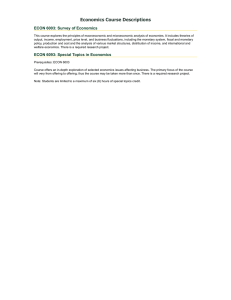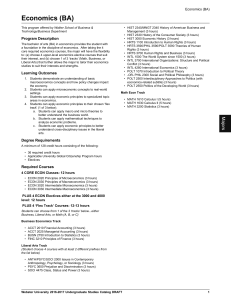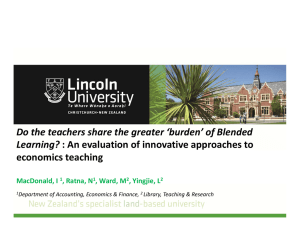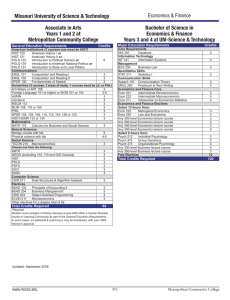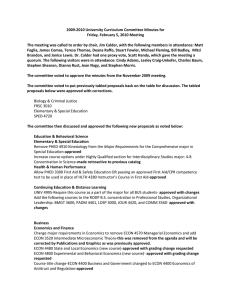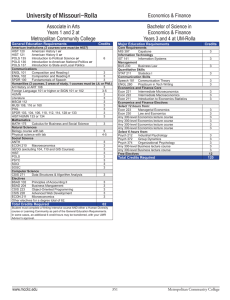‐
advertisement
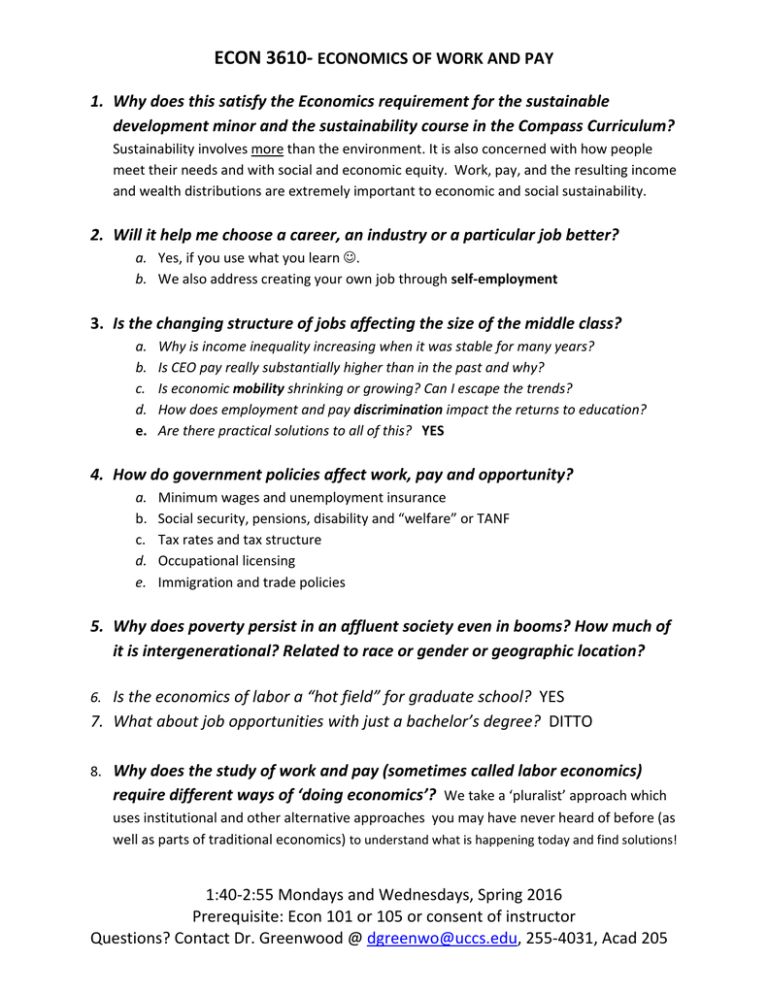
ECON 3610‐ ECONOMICS OF WORK AND PAY 1. Why does this satisfy the Economics requirement for the sustainable development minor and the sustainability course in the Compass Curriculum? Sustainability involves more than the environment. It is also concerned with how people meet their needs and with social and economic equity. Work, pay, and the resulting income and wealth distributions are extremely important to economic and social sustainability. 2. Will it help me choose a career, an industry or a particular job better? a. Yes, if you use what you learn . b. We also address creating your own job through self‐employment 3. Is the changing structure of jobs affecting the size of the middle class? a. b. c. d. e. Why is income inequality increasing when it was stable for many years? Is CEO pay really substantially higher than in the past and why? Is economic mobility shrinking or growing? Can I escape the trends? How does employment and pay discrimination impact the returns to education? Are there practical solutions to all of this? YES 4. How do government policies affect work, pay and opportunity? a. b. c. d. e. Minimum wages and unemployment insurance Social security, pensions, disability and “welfare” or TANF Tax rates and tax structure Occupational licensing Immigration and trade policies 5. Why does poverty persist in an affluent society even in booms? How much of it is intergenerational? Related to race or gender or geographic location? 6. Is the economics of labor a “hot field” for graduate school? YES 7. What about job opportunities with just a bachelor’s degree? DITTO 8. Why does the study of work and pay (sometimes called labor economics) require different ways of ‘doing economics’? We take a ‘pluralist’ approach which uses institutional and other alternative approaches you may have never heard of before (as well as parts of traditional economics) to understand what is happening today and find solutions! 1:40‐2:55 Mondays and Wednesdays, Spring 2016 Prerequisite: Econ 101 or 105 or consent of instructor Questions? Contact Dr. Greenwood @ dgreenwo@uccs.edu, 255‐4031, Acad 205



